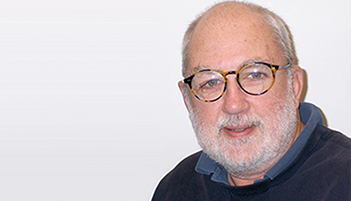HOW CAN WE HELP YOU? Call 1-800-TRY-CHOP
In This Section
Out of the Darkness: New Grant Awarded to Study Stem Cell Therapy for Vision Restoration
 Dora can feel the brisk chill of the wind on her cheeks and hear the crunch of fallen leaves underfoot, but gone from sight are the autumnal colors. An inherited disease that causes blindness robbed her of vision years ago. But, if John Wolfe, VMD, PhD, has anything to do with it, she’ll see the vibrant reds and golden yellows of the season, once again.
Dora can feel the brisk chill of the wind on her cheeks and hear the crunch of fallen leaves underfoot, but gone from sight are the autumnal colors. An inherited disease that causes blindness robbed her of vision years ago. But, if John Wolfe, VMD, PhD, has anything to do with it, she’ll see the vibrant reds and golden yellows of the season, once again.
Dr. Wolfe, a researcher at Children’s Hospital of Philadelphia Research Institute; a professor of Pathology and Medical Genetics in the University of Pennsylvania, School of Veterinary Medicine; and a professor of Pathobiology in Pediatrics in the Perelman School of Medicine at Penn, was awarded a five-year, $6.9 million grant from the National Eye Institute (NEI). The project “Retinal Disease Models for Translational Photoreceptor Replacement” is part of the NEI’s Audacious Goals Initiative for Regenerative Medicine, which focuses on stimulating work that will restore vision through regeneration of the retina. It’s one of five awarded grants to multidisciplinary teams.
Dr. Wolfe co-leads the project with William Beltran, DVM, PhD, Dip. ECVO, a professor of ophthalmology in the School of Veterinary Medicine at Penn, and David Gamm, MD, PhD, of the University of Wisconsin. Other investigators include Gustavo Aguirre, VMD, PhD, professor of Medical Genetics and Ophthalmology; Karina Guziewicz, PhD, research assistant professor of Ophthalmology; and Oliver Garden, BVetMed, PhD, Corinne R. and Henry Bower Professor of Medicine — all three of the Penn School of Veterinary Medicine; and Geoffrey Aguirre, MD, PhD, associate professor of neurology in the Perelman School of Medicine.
Working with dogs that naturally have genetic disorders of the retinitis pigmentosa group of diseases, the team will be studying stem cell therapies to help restore vision to dogs afflicted with these inherited diseases that cause blindness. The process involves taking normal adult cells and reprograming them back into stem cells. Then the scientists grow the stem cells in a dish — “organ in a dish” — where under specific conditions they can develop into retinal progenitor cells (RPCs).
These new light-sensing cells will then be transplanted into the damaged retina in the hopes of recovering vision. Dr. Wolfe is specifically trying to grow photoreceptor cells, as these are the ones affected by the disease. Their research will investigate the best surgical techniques for transferring the cells into the retina, imaging methods to measure the functionality of the new photoreceptor cells and, ultimately, to determine if vision restoration is achieved.
“Our hope is that our project will be a translational model that will accelerate development of a therapy than can be effectively moved into clinical trials for humans. It will help man’s best friend too,” Wolfe said with a smile.
What makes their research unique is that the investigators will be working to restore damaged areas of the retina. Current gene therapies, including the FDA approved treatment Luxturna™, can only replace or correct the impaired genes in living retinal cells. For patients undergoing these treatments there must be enough remaining retinal cells in order for the therapies to work. But living cells are limited or missing in advanced stages of blinding diseases. This is where Dr. Wolfe’s team hopes to make an impact.
“Stem cell therapeutics has tremendous potential — but it’s still mostly potential,” Dr. Wolfe said. “This is all experimental work, but it is clearly driven by the goal of developing it translationally to become a human treatment.”
And with that, Dora just may see the colors of fall again.